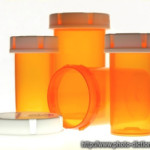On August 25, 2011 Public Citizen, a consumer advocacy group representing more than 225,000 members and supporters nationwide, petitioned the Food and Drug Administration (FDA), pursuant to the Medical Device Amendments to the Federal Food, Drug, and Cosmetic Act, 21 U.S.C. §§ 360f and 360h, and 21 C.F.R. §§ 10.30, 810, and 895, to immediately:
(1) ban the marketing of all currently available non-absorbable surgical mesh products specifically designed and labeled for transvaginal repair of pelvic organ prolapse (POP) — which were used in an estimated 67,500 surgical procedures in the U.S. in 2010* — because these devices (a) offer no clinically significant benefits in comparison to surgical repairs for POP performed without placement of surgical mesh; and (b) have high rates of serious complications, many of which require additional surgical intervention and some of which are not amenable to surgical correction and result in permanent life-altering harm, therefore presenting “an unreasonable and substantial risk of illness or injury,” the standard for the FDA to institute proceedings to ban a device under the device law, 21 U.S.C. § 360f and 21 C.F.R. § 895.21(a);
(2) order all manufacturers of non-absorbable surgical mesh products specifically designed and labeled for transvaginal repair of POP to recall these products; and
(3) require that any non-absorbable surgical mesh product specifically designed and labeled for transvaginal repair of POP that is proposed for marketing in the future be classified as a class III device and be approved for marketing only under a pre-market approval application (PMA) that includes data from well-designed, prospective clinical trials that provide a reasonable assurance that the surgical mesh product is safe and effective.
Public citizen and the doctors supporting its petition to ban bladder sling mesh have focused their petition on seven different surgical mesh products that are marketed specifically for use on POP repair. These vaginal mesh products are the following:
- Gynecare Prolift Total, Anterior, and Posterior Pelvic Floor Repair Systems (Ethicon, Inc. — a Johnson & Johnson subsidiary)
- Gynecare Prolift +M Total, Anterior, and Posterior Pelvic Floor Repair Systems (Ethicon, Inc.)
- Gynemesh Prolene Soft Nonabsorbable Synthetic (Ethicon, Inc.)
- AMS Elevate Anterior and Apical Prolapse Repair System (American Medical Systems, Inc., Minnetonka, MN)
- Pinnacle Pelvic Floor Repair Kits (Boston Scientific Corp., Marlborough, MA)
- Avaulta Support System (C.R. Bard, Inc., Covington, GA)
- Polyform Synthetic Mesh (Proxy Biomedical, Ltd., Galway, Ireland)
There are clear differences between what is legal and what is ethical with regard to the use of surgical devices such as the ever-expanding number of [trocar]-and-mesh kits now marketed for the treatment of incontinence and prolapse. Unlike drugs—which must be shown by clinical trials to be both safe and effective prior to their release—current regulations in the USA do not require medical devices such as the mesh kits for incontinence surgery and prolapse repair to meet this burden of proof [1]. If the Food and Drug Administration decides that a device is “equivalent” to something that has already been cleared for release, it is allowed to enter the market. Independent clinical trials are not currently required. Thus, permission to allow a new device to enter the market is largely a political decision; but legal permission to market a device is not the same as using it in an ethical manner…
[ACOG] should throw its considerable weight behind efforts to bring the legal requirements for marketing new devices in line with our profession’s ethical obligations to our patients. New medical or surgical devices should not be allowed into the American or any other world market until there is definitive evidence of the devices’ safety and efficacy on the basis of properly designed, properly powered clinical trials. Rather than changing policy to accommodate enhanced reimbursement for ethically questionable practices, ACOG should push for more stringent regulatory control of the medical device industry.
- Synthetic surgical mesh placed during transvaginal repair of POP commonly causes many serious adverse events.
- Patients who undergo transvaginal POP repair with surgical mesh are subject to many mesh-related complications that do not occur in patients who undergo POP repair without mesh.
- The most common complication caused by surgical mesh used in transvaginal POP repair is mesh erosion. This adverse event occurs in approximately 10% of women undergoing transvaginal POP repair with surgical mesh.
- More than half of the women who develop mesh erosions from non-absorbable, synthetic mesh require surgical excision. Some women require two or more additional surgeries.
- Some adverse events, such as mesh contraction, can be life-altering for some women. Some complications such as pain and dyspareunia may continue despite mesh removal.
- New-onset stress urinary incontinence (SUI) has been reported to occur more frequently following transvaginal POP repair with mesh than repair without mesh.
Public Citizen therefore concludes that implantation of vaginal mesh products are not currently “ethically justified” and requests (1) that all current bladder sling mesh products in use be recalled, (2) that the FDA ban the use of these products, and (3) that any future products be subject to the full pre-market approval process including appropriate clinical trials.
If you or a loved one has already had a vaginal mesh product manufactured by Gynecare, Ethicon, Johnson & Johnson, C.R. Bard, American Medical Systems or Boston Scientific and have had mesh complications such as mesh erosion, contact a vaginal mesh lawyer today for a free consultation.
Public Citizen FDA Petition (.pdf) Letter from Daniel S. Elliott, M.D. of the Department of Urology at the Mayo Clinic (.pdf) Letter from L. Lewis Wall, M.D. of Washington University (.pdf)









Recent Comments